Sovereign Negotiations Still the Most Preferred Option for Nigeria
By Babafemi A. Badejo
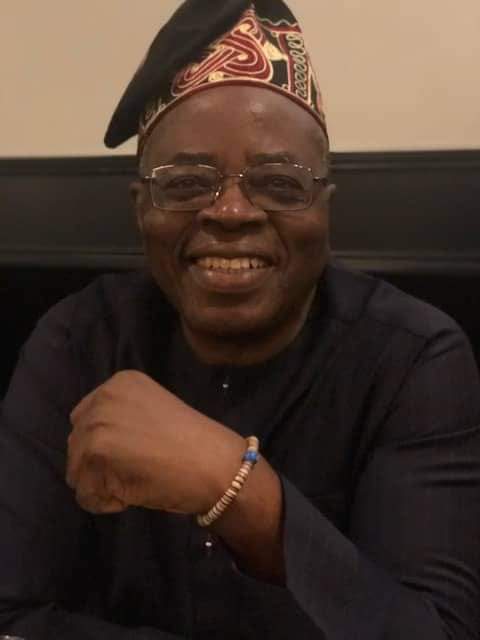

Sovereign Negotiations Still the Most Preferred Option for Nigeria
By Babafemi A. Badejo
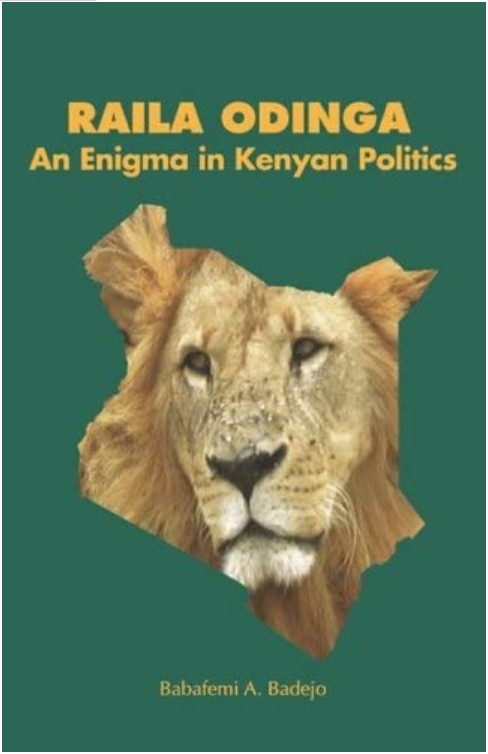
RAILA ODINGA
An Enigma in Kenyan PoliticsBY:
Babafemi Adesina BADEJO, Ph.D, LL.B
C.E.O., Yintab Strategy Consults
Lagos, NigeriaYINTAB BOOKS, LAGOS AND NAIROBI, 2006
Click link below to download full story in PDF
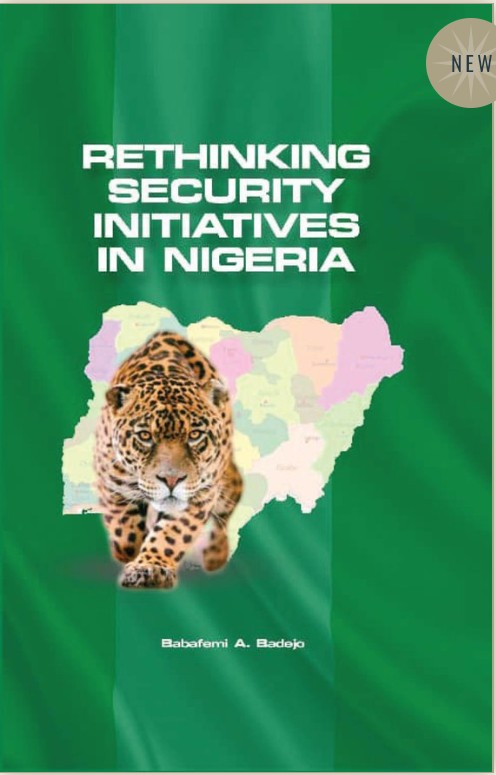
Rethinking Security Initiatives in Nigeria
BY:
Babafemi Adesina BADEJO, Ph.D, LL.B
C.E.O., Yintab Strategy Consults
Lagos, NigeriaYINTAB BOOKS, LAGOS, 2020
Click link below to download full story in PDF
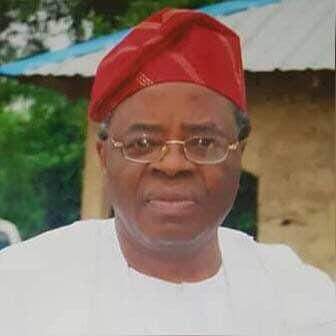
Persistence of Corruption in Nigeria: Towards a Holistic Focus
IN:
Sunday Bobai Agang et. al., (eds.), A Multidimensional Perspective on Corruption in Africa: Wealth, Power, Religion and Democracy, (Newcastle upon Tynes: Cambridge Scholars Publishing, 2019), Chapter 7.
BY:
Babafemi Adesina BADEJO, Ph.D, LL.B
C.E.O., Yintab Strategy Consults
Lagos, Nigeria
Click link below to download full story in PDF

The State of Anti-Corruption in Nigeria: 2015-2019
IN:
Chris Jones, Pregala Pillay and Idayat Hassan, (eds.), Fighting Corruption in African Contexts: Our Collective Responsibility, (Newcastle upon Tynes: Cambridge Scholars Publishing, 2020), Chapter 2BY:
Babafemi Adesina BADEJO, Ph.D, LL.B
C.E.O., Yintab Strategy Consults
Lagos, Nigeria
Click link below to download full story in PDF

Economic Philosophy and Constitution
Making in NigeriaIN:
Journal of Management and
Social Sciences
© The Author 2018
Reprints and permissionBY:
Babafemi Adesina BADEJO, Ph.D, LL.B
C.E.O., Yintab Strategy Consults
Lagos, Nigeria
Click link below to download full story in PDF
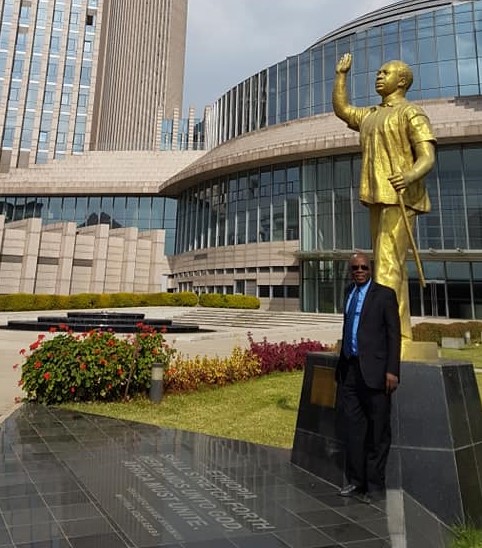
A STUDY ON THE MODALITIES FOR THE
OPERATIONALIZATION OF THE AFRICAN HUMANITARIAN AGENCYSUBMITTED TO:
THE DEPARTMENT OF POLITICAL AFFAIRS, THE AFRICAN UNION COMMISSION
BY:
Babafemi Adesina BADEJO, Ph.D, LL.B
C.E.O., Yintab Strategy Consults
Lagos, Nigeria
Click link below to download full story in PDF
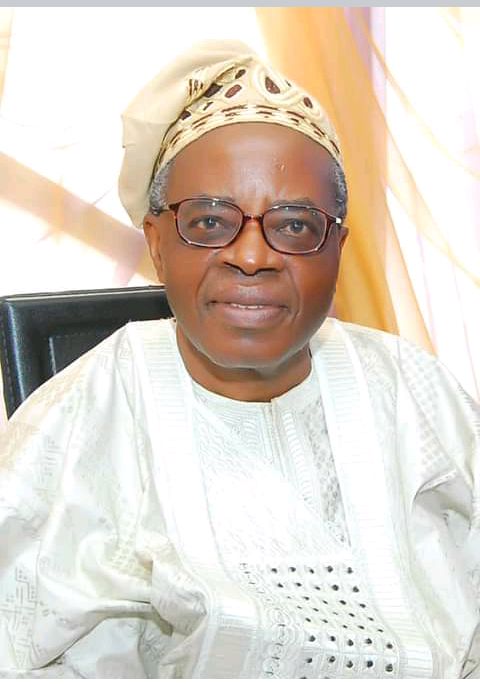
LEADERSHIP Conversation Series: “Asking Youths To Vote Is Waste Of Time”
By Babafemi A. Badejo
A general deception pervades the Nigerian landscape: The much talked about return of Nigeria to democracy in 1999 under a constitution promulgated by the military in that year. Professional politicians, their hangers-on, uninformed public at large and worse still, those in the academia and the media, perpetrate this deception. This “noble lie” (apologies to Plato) is pushed further by aspiring politicians to castigate the Nigerian youths as not doing enough by coming out in large numbers to install a President from amongst one of them. The emphasis is on the ballot box that is normally rigged in Nigeria.
At every electoral cycle, there is always a media-fired campaign with catch phrases as “get your PVCs, be responsible etc”. This is the campaign manifesto of interested candidates who think their failure to be put forward by either of the two shifting alliances of thieves called political parties in Nigeria, would be rectified once the youths adopt them. Why the youths should vote en masse for a new candidate under a rigged constitution and preposterously fraudulent electoral system in the pursuit of the mirage of democracy is hardly addressed. If the 1999 Constitution clearly means well for a multi-party electoral system, why has the destiny of Nigerian democracy been hijacked by a set of politicians being rotated along the two shifting alliances of thieves?
To start with, the 1999 Constitution remains the least consulted document by the military law givers. The 1979 Constitution at least had a number of pretenses of consultation through the appointment of a selected 49 drafters and a selected Constituent Assembly. It probably would not have made any difference, but there was no referendum to pay lip-service to the idea inherent in the terminology of “We the People”.
Nikki Tobi, a great mind and late Justice of the Supreme Court was selected to head the midwifing of the 1999 Constitution within an impossible time space. The Nikki Tobi led Committee called for memoranda and received some and went on to claim that the 1999 Constitution is based on that of 1979. That claim is not exactly correct as there was a Babangida 1989 Constitution that Abacha pushed aside for the one he commissioned Auwal Yadudu to write which became the basis for what was promulgated as the 1999 Constitution. The then Minister of Information, John Nwodo is on record denouncing the 1999 Constitution stating that the cabinet (including himself) was not even consulted and the Constitution was not in print and was still being militarily changed by fiat even as President Obasanjo was sworn in on May 29, 1999 (former Democracy Day).
How can a foundational lie of having a democracy be expected to produce a democratic process? What rests on the barrel of the gun can only be a militarized Constitution and not a democratic one. We can continue to deceive ourselves till tomorrow that we have democratic governance. What rests on a lie can only produce a lie. Robert Clarke (SAN) in a Channels TV discussion, reiterates this point when he repeated that trite legal position: “we lawyers say you cannot build something on nothing” while calling for the complete jettison of the 1999 Constitution.
The politicians and others in Nigeria will never address such a fundamental issue as the constitutionality of the 1999 Constitution, for it serves their respective interests. Albeit, it should be glaring that the current 1999 Constitution has never benefited the large class of Nigerians, and can never bring about any significant progress for the achievement of a democracy that advances the interests of a majority of Nigerians.
It is important to note that interest is the core of politics. It includes material and non-material fundamental needs of human beings in society. Interests center around the human desires for utmost freedom. Utmost freedom represents the summation of all the freedoms essential for the good life in society. Most of these freedoms found in foundational documents like the 1948 Universal Declaration of Human Rights are clearly stated in the UN Sustainable Development Goals (SDGs). They include freedom from hunger, freedom from discrimination, freedom from insecurity as well as a number of freedoms to undertake actions like to associate, to be educated etc.
The philosophical positions in support of the interests of the few find their way into constitutions. Charles Beard blazed the trail on an economic interpretation of the American constitution wherein he made it clear through his analysis that, that constitution did not emanate from abstract suggestions of compromises of popular interests or state versus federal interests etc. With a detailed analysis of the biographies, tax records, private papers etc to arrive at the conclusion that articles of the constitution were meant to protect property interests of the founders of that constitution.
Professors Segun Osoba, Akin Oyebode, Babafemi A. Badejo (with respect to Pakistan and Nigeria), late Justice Akinola Aguda among others, have articulated this position in academic works. Osoba puts it succinctly: “a constitution is no more than a legal statement encapsulating and rendering in a formal manner the existing balance of social forces and the distribution of substantive power among the various classes and interest groups in society”. In effect, the 1999 Constitution does not represent the interests of the Almajiri youths of northern Nigeria nor the peasant producers in southern Nigeria nor Nigerian geopolitical zones façade or even ethnic groups: The 1999 Constitution represents the fundamental interests of the dominant Nigerian social forces made up the military leadership that usurped power as well as classes of people who are subservient capitalists and/or agbero people (agbero loads up the bus and receives a small fraction as the driver and his conductor drives off), in a larger capitalist world.
Religious precepts, the respective preachers urge followers to endure and wait for their utmost freedom in paradise/heaven. Other ideologically laden words like democracy back up the exploitative order. Democracy is reduced to elections as the media join dominant forces to ask people to wait for the next cycle. The assessment of the performance of a democratic governance in allowing the realization of utmost freedom for most of the citizens is never an important focus. All efforts justify the argument that the contest for state power is to manage the interests of the Dangotes, Rabius, Otedolas, etc. Managers of governance apparatuses as: executhieves, legislooters and judisharing help themselves to as much as they can steal in a perverted corrupt order. Nigerian billionaire elites determine government policies and actions as clearly evidenced in the production/prices issues currently under debate in Nigeria.
In effect, the struggle for 2023 is not a problem of youths coming out en masse to vote or not. Unfortunately, this usual noisy campaign in build-ups to elections will soon start without addressing the fact that we do not have a democracy. 2023 would be about a struggle to manage an undemocratic governance arrangement after a faulty electoral process. Whether that President is Ibo, Ogoni, Yoruba, Kanuri, Hausa, Edo or Fulani, it is a case of plus ça change, plus ça meme chose.
Even, if an aspiring technocrat is accidentally elected in today’s Nigeria, he/she is constrained by the imposed 1999 Constitution and has to playball accordingly. Or else he/she would be impeached by the legislooters who came into office mainly to share bags of money as they fulfil their Ali Baba and the Forty Thieves destiny.
With such a structural situation, how can anyone be telling the youths to go out en masse and vote without first ensuring or at least canvassing for the jettisoning of the 1999 Constitution to realise a different constitutional order that prioritises the interests of majority of Nigerians? Democracy is not equal to the ballot paper. It is more than that. It includes performance of elected officials acting under constitutional arrangements that are compliant with structurally delivering on utmost freedom for the majority of citizens.
The type of the handling of the constitution that I canvass is different from those clamouring for restructuring who are interestingly silent on corruption that is inherent in our pseudo-democratic experiment. Fundamental changes in values, structures and institutions replicated under the 1999 Constitution must first take place before power can successfully and meaningfully change hands. Mere restructuring and or continued amendment of the 1999 Constitution is only scrubbing the surface.
Click link below to download full story in PDF

Pathway Conversation Series: Dancing Around Truth Won’t Get Us Far
By Babafemi A. Badejo
Click link below to download full story in PDF
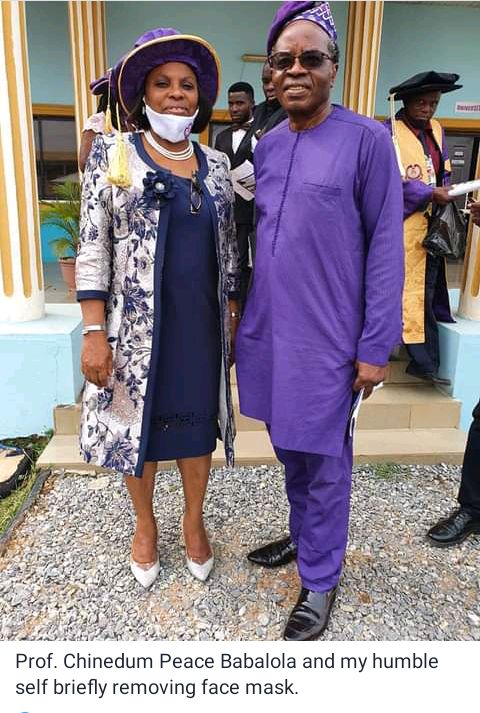
6th Matriculation Ceremony of Chrisland University and the tortuous Experience along Eternally Rehabilitated Lagos-Ibadan Expressway
Babafemi A. Badejo, Ph.D
As the 2020 lockdown canceled my lined up international speaking engagements to Addis Ababa in March, South Africa in April and the US in April and September, it dawned on me that post lockdown would be a different situation: a new normal of increased online living. It became necessary to reinvent my post-UN life plans. I had earlier written on planning for retirement in what I titled “Retirement Plan Parts I&II” in 2017 upon my retirement from the United Nations. Knowledge sharing is something I have always enjoyed, so I engaged in this under the auspices of Yintab Strategy Consults (YSC).
Click link below to download full story in PDF